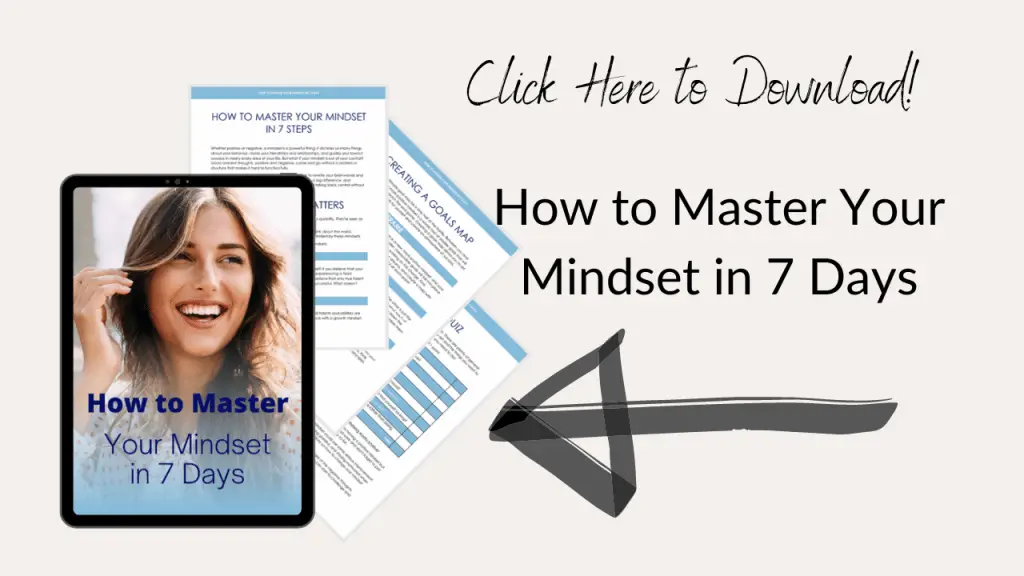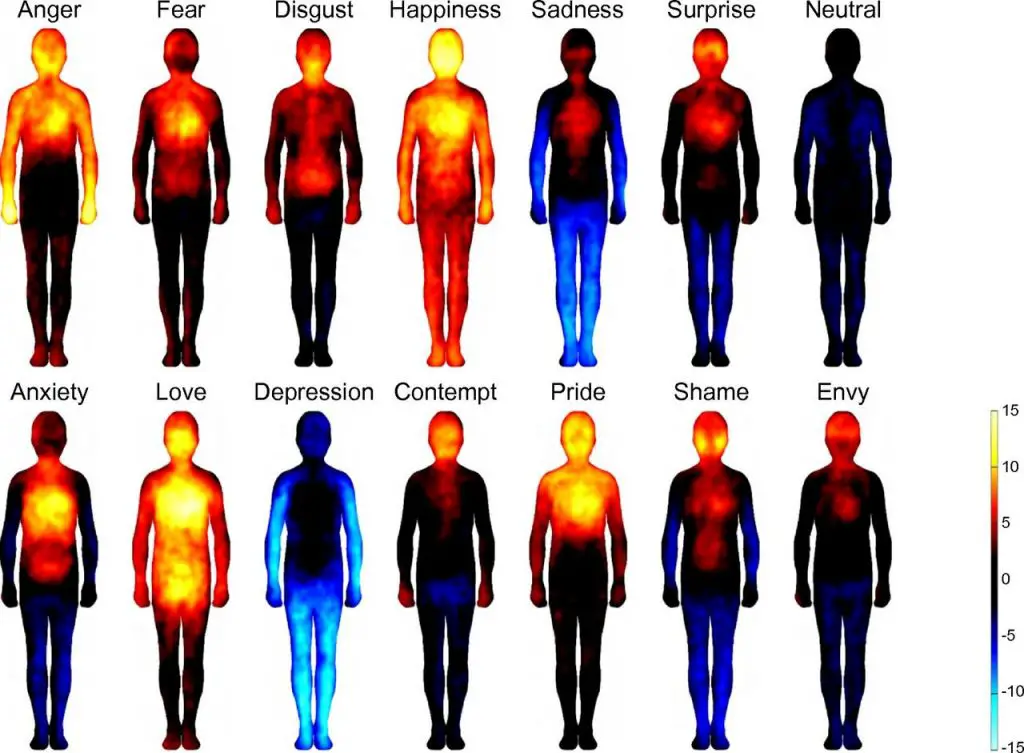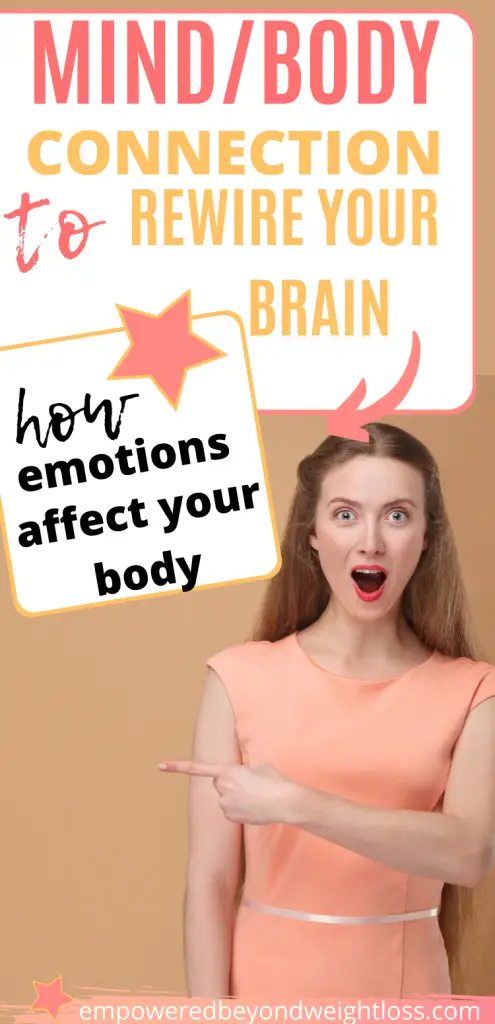The mind\body connection is powerful. That’s why I decided to include mindfulness in my health coaching. Fasting, movement, and mindfulness are all essential to enjoying optimal health. Today, as we discuss the mind/body connection, we will explore what science says about the mind-body connection, and I will give you some practical tips to put it to your advantage.
Mind/Body Connection: What Does Science Say?
What does science say about the mind/body connection? The scientific literature is filled with research and examples demonstrating your mind’s power over your body.
Mind/Body Connection Research
Research has been clear about the impact of stress on your health for a long time. The understanding that emotions affect physical health dates back to the second century. However, within the last 30 years, research into the link between health and emotions has moved into the “mainstream.”
Mind/Body Connection Examples
Scientific literature is replete with examples of mind/body connection. For example:
- Negative psychological factors, personality traits, and mental health disorders can affect cardiovascular health.
- Breast cancer patients who participated in weekly group therapy sessions survived nearly twice as long as patients who did not participate.
- Placebo immunosuppressive drug administration can “trick” the immune system into suppression.
- Placebo painkillers reduce pain.
- Painkillers reduce empathy for pain.
- Perceived time affected the blood glucose levels of diabetic subjects rather than actual time.
- Participants perceived sugar intake affects blood glucose levels.
- Life events affect your immune system.
And on and on it goes…

How to Take Advantage of Your Mind/Body Connection
I think it is clear that the mind/body connection is powerful. Now, how can you harness this power?
Heal Your Body Through Your Mind
For one, you can use your mind to heal your body or improve your physical well-being. Try the following steps:
- Develop awareness: Include mindfulness practices in daily life (Top 7 Reasons Why Mindfulness Is Important).
- Practice gratitude: Focusing on things you are grateful for will improve your mental (and physical) well-being.
- Have faith: Whether you believe in a higher power or your innate intelligence, knowing that things will work out how they are meant to will improve the outcome of any situation.
- Meditate: Spending only 5 minutes daily focusing on your breath or listening to mindfulness audio can improve your health.
- Cultivate positive thoughts: Your thoughts create your feelings. You create positive emotions as you learn to cultivate positive thoughts (which include your gratitude practice). You can shift your mindset and rewire your brain regarding any issue stressing you out.
Need more guidance? Download my guide How to Master Your Mindset in 7 Days.

Should You Avoid Negative Emotions?
As you realize the impact of the mind/body connection, you might be under the impression that it is preferable to avoid negative emotions to improve your physical well-being.
While learning not to dwell on negative emotions is preferable, you don’t need to avoid them. Instead, apply mindfulness techniques to acknowledge them. Think about where you feel these emotions in your body. Slowly replace old thought patterns with new ones. For example, if you frequently tell yourself: I hate my job and wish I had more time to spend with my family; it will make you feel stressed and upset. Spend some time feeling and defining your emotions. Notice where you feel the tension. Think of practical steps you can take to improve your career situation. Make the most of every moment you get with your loved ones and include them in your gratefulness exercises.
As an optimistic person, I fell into the trap of ignoring and avoiding my negative emotions. I am learning to accept and acknowledge them instead. Once you do that, you can move on and find peace.

Heal Your Mind Through Your Body
I started writing this post about the mind/body connection with the understanding that your mind impacts your physical well-being. I didn’t consider to the same degree that you can use physical practices to heal your mind. And it’s not just about working out to benefit from a quick release of endorphins and feel better. I mean healing severe conditions like anxiety and depression.
Basics of Exercise to Heal the Mind
To tackle your emotional well-being, practice moderate physical exercise for 30 minutes thrice weekly. Consider walking, cycling, swimming, dancing, or, of course, yoga! Rea.d Top 5 Flexibility Benefits I Personally Experienced After 40.
On the other hand, if you are experiencing anxiety or depression, high-intensity workouts are not your best choice. Your body is already under stress, and high-intensity exercise is a kind of stress. Similarly, my 30-Day Intermittent Fasting Transformation includes moderate yoga workouts because fasting is a stress. Your body gets stronger by overcoming stress, but you want to limit your stresses.
Exercise and Inflammation
Depression can be due to a lack of serotonin, but it can also be caused by inflammation. Inflammation damages your cells and gets into your brain, affecting your mood. I can tell you that I experience this myself whenever I eat gluten. Gluten causes inflammation in my body and affects my mood without fail.
Exercise can improve your mood by reducing inflammation.
Mind/Body Connection Video
In Summary
You can use the mind/body connection to improve your mental and physical well-being. Observe your negative emotions to learn and grow. Foster positive emotions and practice mindfulness. Find a moderate-intensity activity to enjoy for 30 minutes three times a week. Congratulations! You are taking action to improve your life effectively!




